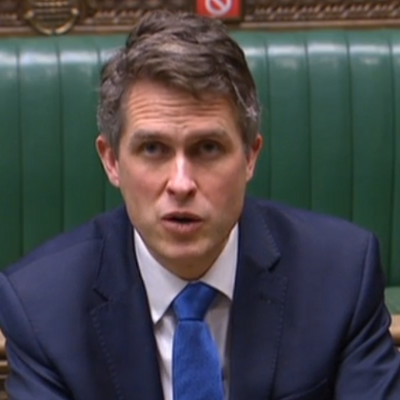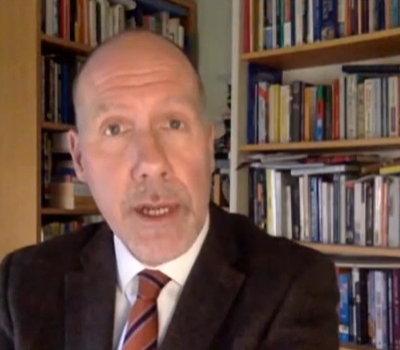Schools will be asked for information about their behaviour strategies, their use of so-called “managed moves”, and how they deal with mobile phones as part of a six-week consultation launching today.
This is an operational decision for schools, not something that can be micromanaged from Westminster
The call for evidence was pledged by education secretary Gavin Williamson earlier this year. He said at the time the government wanted to find out “how we can help heads remove phones from the school day”.
Today, Williamson warned that mobile phones were “not just distracting, but when misused or overused, they can have a damaging effect on a pupil’s mental health and wellbeing”.
“I want to put an end to this, making the school day mobile-free.”
It does not look like the government will pass legislation to enforce this, however. The call for evidence document states that responses will help “inform revisions” to non-statutory behaviour guidance and statutory guidance on exclusions.
The consultation document asks schools “what challenges” they would or do face in banning mobile phones from the school day, and whether they have “any concerns” about banning them.
The department said the use of mobile phones in schools was “one of a number of areas being looked at by the government as part of a review of behaviour in schools”.

The consultation will ask school staff and parents for their “views and policies on managing good behaviour, ahead of planned updates to government guidance later this year on behaviour, discipline, suspensions and permanent exclusions”.
Ministers are also hoping to find out “how schools maintain calm classrooms, the use of removal rooms and creating mobile phone-free school days, among other measures”.
Schools are also being asked for information about their behaviour strategies and practices, “including questions on practices or interventions that have been effective in addressing low level disruptive behaviour”.
Schools asked for info on ‘managed moves’
It will also gather responses from schools about “how and when they might decide to transfer a pupil to another school in their best interest, known as managed moves”. It will also ask whether policies and approaches have changed in response to the pandemic, and which “successful practices” schools “intend to maintain”.
“No parent wants to send their child to a school where poor behaviour is rife. Every school should be a safe place that allows young people to thrive and teachers to excel,” said Williamson
“In order to for us to help pupils overcome the challenges from the pandemic and level up opportunity for all young people, we need to ensure they can benefit from calm classrooms which support them to thrive.”
The education secretary has spoken repeatedly of his support for mobile phone bans, which are at the discretion of school leaders.
Schools minister Nick Gibb is also a fan of the bans, and claimed in April there was “evidence that those schools that do restrict the use of smartphones in schools…are seeing higher test scores and higher attainment as a consequence”.
However, an investigation by Schools Week found the evidence cited by Gibb was from an eight-year-old study that some academics have criticised for showing “insignificant” impact on test scores.
Williamson ‘obsessed’, warn leaders
Geoff Barton, general secretary of the ASCL school leaders’ union, said Williamson “appears to be obsessed with the subject of mobile phones in schools”.

“In reality, every school will already have a robust policy on the use of mobile phones; it isn’t some sort of digital free-for-all. Approaches will vary between settings and contexts, but this is an operational decision for schools, not something that can be micromanaged from Westminster.”
He said the education secretary should focus on delivering “an ambitious post-pandemic recovery plan and setting out how he intends to minimise educational disruption next term, rather than playing to backbenchers on the subject of behaviour”.
“We have no objection to looking at the issue of how to support good behaviour in general, but it is important to recognise that there are wider factors that also need to be addressed. There have been severe cutbacks to the support that is available to struggling families and children over the past 10 years because of the government’s austerity policies.
“These programmes are an essential part of addressing the complex needs of many young people and supporting good behaviour. The government must do more for our most vulnerable families.”








Your thoughts